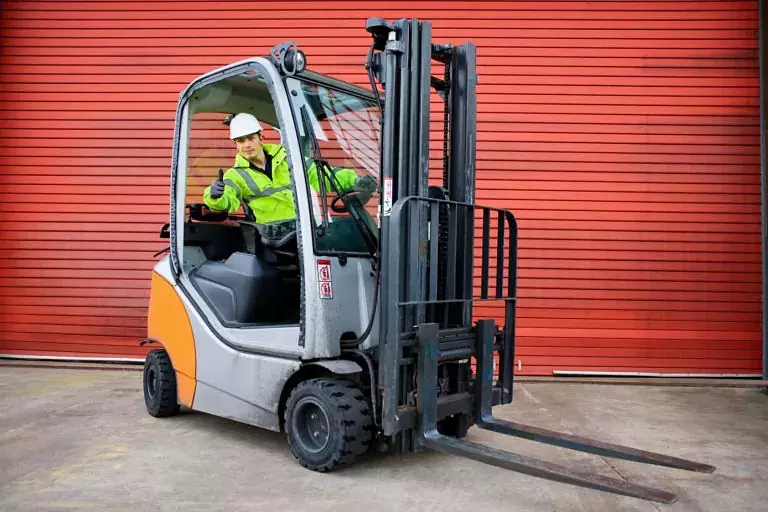 The forklift can be a swiss army knife in your material handling operation. These vehicles can help you tackle a wide range of initiatives, bolster productivity, reduce costs, and help tackle those especially difficult shipping and receiving orders. With this being said, forklifts always need a little bit of tender, love, and care too. These devices – if not properly up kept – can deteriorate rapidly and ultimately hinder your enterprise. Are you looking to protect your investment and ensure it meets all the long-term goals you set for it? Have you found previous forklifts living well under their life expectancy? There are many steps you can take to avoid long-term damage to your forklift. Here is a comprehensive guide on how to make sure you get the most of your material handling appliance.
The forklift can be a swiss army knife in your material handling operation. These vehicles can help you tackle a wide range of initiatives, bolster productivity, reduce costs, and help tackle those especially difficult shipping and receiving orders. With this being said, forklifts always need a little bit of tender, love, and care too. These devices – if not properly up kept – can deteriorate rapidly and ultimately hinder your enterprise. Are you looking to protect your investment and ensure it meets all the long-term goals you set for it? Have you found previous forklifts living well under their life expectancy? There are many steps you can take to avoid long-term damage to your forklift. Here is a comprehensive guide on how to make sure you get the most of your material handling appliance.
Determine Maintenance Needs
Naturally, usage patterns shift on a yearly basis. This is a fundamental narrative that all owners should take credence in. Looking at last year’s patterns in usage, repairs, and downtime can help determine an accurate analysis and projection for maintenance needs as well as potential hazards that can hinder performance. Analyzing maintenance can provide the best viewpoint of how each vehicle is holding up. When determining these maintenance needs it is imperative to stick to sound care regimes and preventive maintenance initiatives to prolong the life of the vehicle. Essentially, what you put into any forklift is what you will get back in return. Procrastinating on simple oil changes or tire rotations can produce effects that are far more egregious in comparison to executing the project. Proactive maintenance is a rudimentary component of a forklift remaining safe to use and in good health.
Treat The Battery
Treating the battery is another essential task that is a part of prolonging the lifespan of a forklift. Checking the battery before each use for leaks is one errand that must be conducted. Moreover, examining the battery terminals for any oxidation is another step you can take. These small yet vital objectives ensure that the forklift is getting all the power it needs to do the work you need it to. Failing to do so can result in a variety of malfunctions that are far more detrimental in price comparison to installing a new battery and/or terminals.
House Forklifts In Dry Areas
This factoid relates to the second more so than the first. We mentioned how oxidation can intensify the deterioration of any forklift or material handling appliance. Storing these vehicles in dry areas prevents the onset of this phenomenon and reduces its effects if amended in due time. There are many reasons why forklifts should be stored in dry areas. Most notably, in addition to preventing deterioration from oxidation, doing so will also reduce exposure of electrical parts to the elements. The electrical system is something that must be protected at all costs. According to Unicarriers, maintenance should only comprise 5% of your operating budget. This can be lowered by taking the proper precautions.
